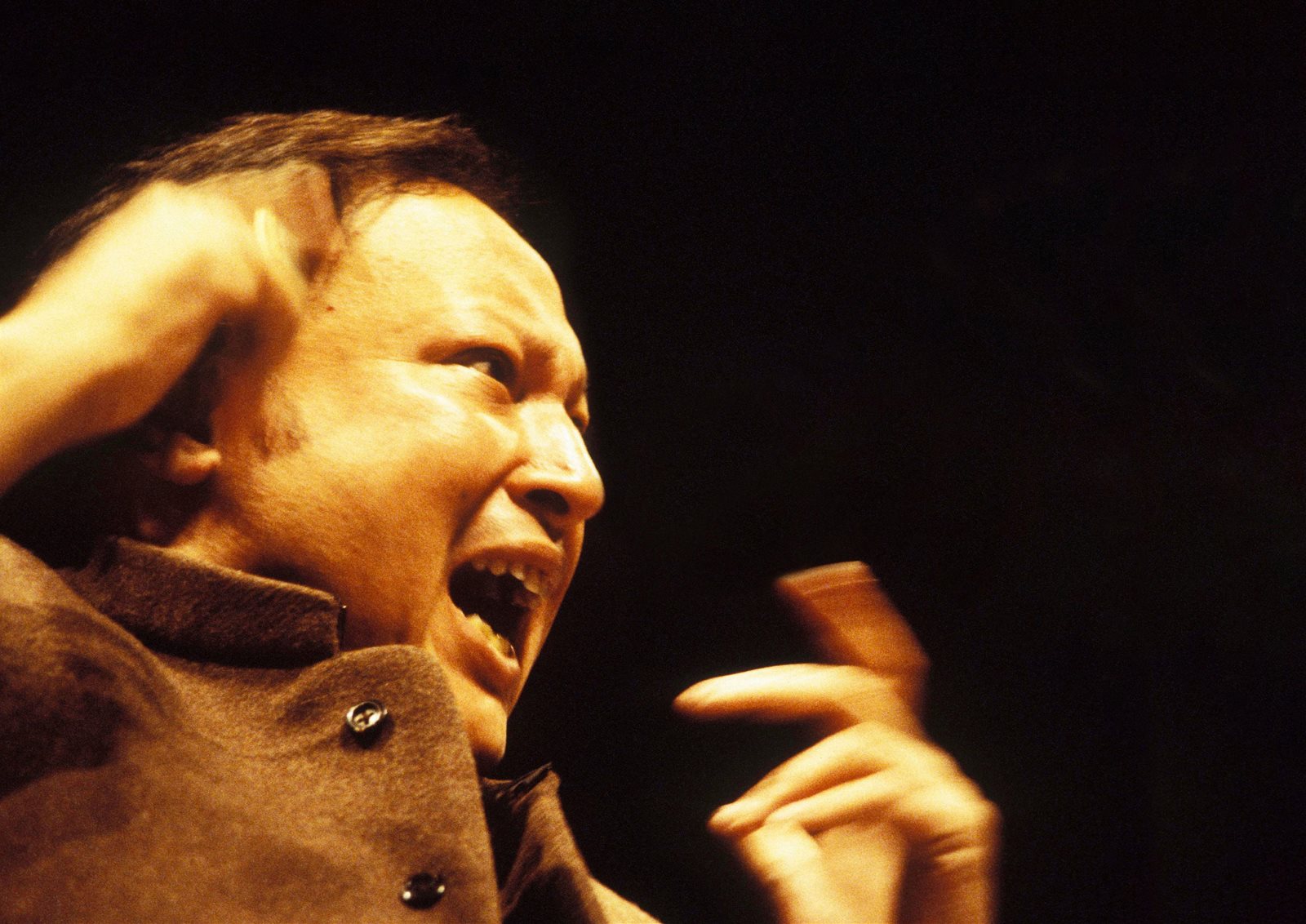
Natural mystic: the ‘Emperor of Qawwali’, Nusrat Fateh Ali Khan, early-’90s.
Rico D’Rozario/Getty
THE HARMONIUM BEGINS, WHEEZING A FEW aimless notes into the air. Then the tabla player joins in and we have a tune. It’s the WOMAD festival in Reading, July 1993. MOJO is sitting crosslegged on the ground, second or third row. Another harmonium joins in, then Nusrat Fateh Ali Khan, sitting left of centre as we watch, his hair matted with sweat, starts tapping a rhythm. The second line of seated performers behind him start clapping in unison. He sings a long, keening note, they pick up and run with it. Raising both arms, Khan serves notice that he’s about to take command. The chorus of Mustt Mustt begins – many here will recognise it from the Massive Attack remix that has recently become Britain’s first chart entry in Urdu. That had a drowsy dub feel, but now the handbrake is off.
Mustt Mustt, which translates as “Lost In His Work”, is one of the best known of Khan’s songs, which makes it a contender for the most famous of all qawwali hymns, devotional music from southern Asia. By the 1990s, Khan had been spreading the word for 20 years; the past decade had seen him reach audiences no other qawwali singer has been able to touch. Yet his music, some of it centuries old, has been attacked by more conservative strands of Islam in which there is no place for music; qawwali had also fallen out of favour with the youth of Pakistan, at least until Massive Attack picked up on it. “I made my own style,” explained Khan when criticised for allowing the Bristol crew free rein. “We updated qawwali with the times.”